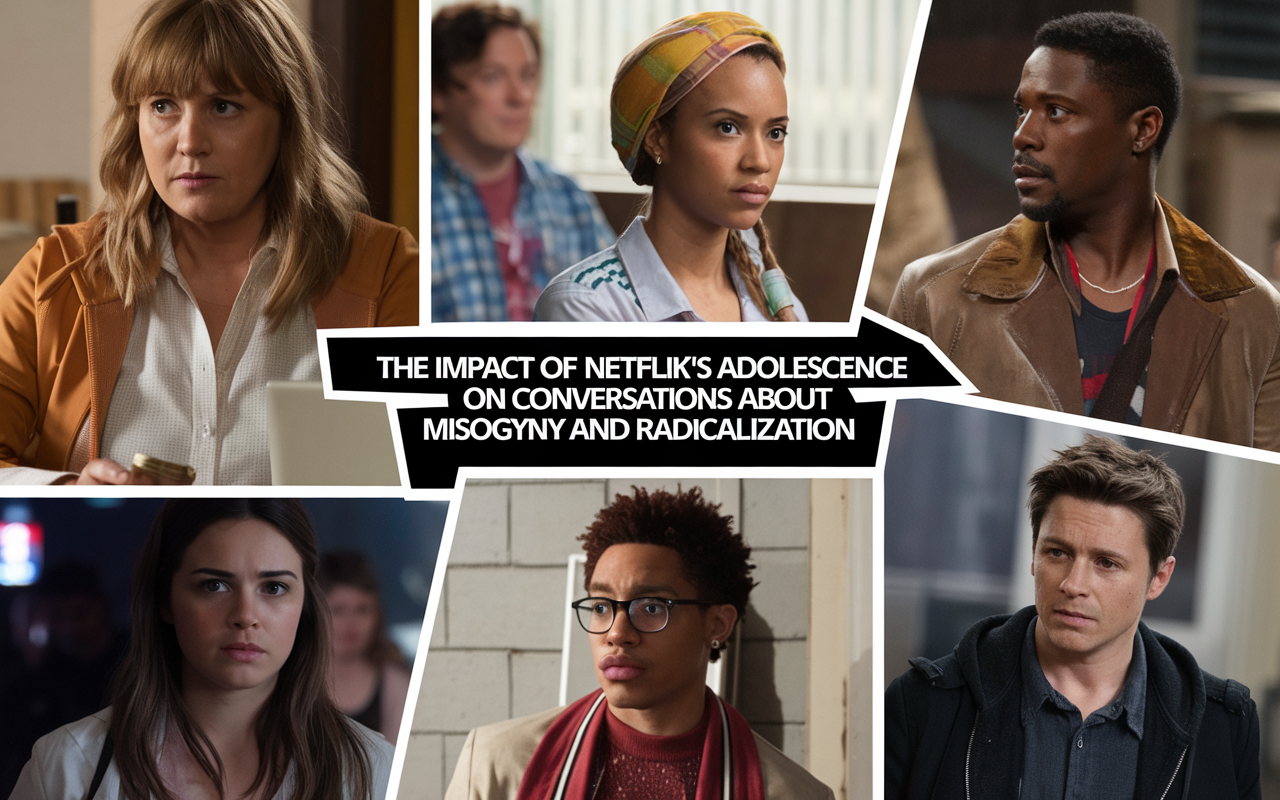Unpacking the Impact of Netflix's "Adolescence": Conversations on the Manosphere and Incel Dread 🌍📺
Netflix's latest series, "Adolescence," has caused quite a stir online, prompting crucial conversations about the far-reaching effects of misogyny in digital spaces and its potential to radicalize young individuals. 📈 This gripping show has captured the spotlight not just for its storytelling but also for tackling sensitive topics around incel culture and the manosphere—a subculture known for promoting toxic masculinity and violence against women. What’s the takeaway here? Let's dive into the details! 🏊♂️
A Young Boy's Tragic Transformation 😢
The story follows Jamie Miller, a 13-year-old boy living a seemingly normal life until a shocking twist reveals his role in the murder of a classmate, Katie Leonard. As viewers discover, Jamie’s online encounters with misogynistic forums—often associated with the term "incel" (involuntary celibate)—appear to have warped his understanding of women, culminating in tragedy. 🙁💔 This scripted drama throws light on how easily a young mind can become a vessel for harmful ideologies.
Radicalization in the Age of Social Media 📱⚠️
The creators of "Adolescence," Steven Graham and Jack Thorne, aimed to explore the emotional fallout of radicalization while presenting a nuanced view of what draws young boys into these dangerous ideologies. As they crafted Jamie's character, they emphasized that he was not inherently evil; rather, he was shaped by his digital environment.
Allysa Czerwinsky, an expert in male supremacy and online extremism noted, “The manosphere offers easy answers to complex personal problems.” 🎓 This was echoed by fans and commentators alike, including university students who identified with Jamie’s experiences and recognized how common it is for young boys to be influenced by dangerous rhetoric surrounding masculinity.
A Call for Discussion and Responsibility 🔍👨👩👦
With powerful societal questions at the forefront, "Adolescence" has been lauded for its ability to foster discussions across various platforms, especially on TikTok and Twitter. The show’s portrayal of how the manosphere preys upon vulnerable youths has not only captivated an audience but also ignited dialogue among parents and educators.
Jaz Johnson, a pastoral officer in Brighton, expressed the importance of early interventions, stating that family members must address violent language and behaviors immediately. 🗣️ Her reflections remind us that conversations around misogyny should start at home—candid discussions can influence the perceptions of the young men in our communities. 👫
Broader Implications and Future Conversations 💭🤝
"Adolescence" has resonated deeply with viewers, highlighted by Prime Minister Keir Starmer's support for showing the series in schools to cultivate essential conversations. 🌟 As the series continues to draw in millions of viewers, the themes it presents are becoming increasingly relevant in today’s society. It raises the question: Can we use popular media as a springboard for change?
The series does not attempt to present tidy solutions to the deeply-rooted misogyny problem. Instead, it emphasizes collective responsibility to address these complex issues together. The creators recognize that individual factors influence radicalization, and the conversations catalyzed by the series may help prevent boys from adopting extreme ideologies in the first place.
Conclusion: Our Role in Stopping the Cycle 🔄❤️
As we reflect on "Adolescence," one truth becomes clear—combating radicalization and misogyny requires collective effort. From creating safe online spaces to fostering supportive home environments, every conversation counts! For us as a society, the time to act is now.
Have you watched "Adolescence"? What are your thoughts? How can we encourage healthier dialogue around masculinity and relationships? Share your views in the comments below! 💬
#AdolescenceSeries #ManosphereConversations

More Stories
Exciting News: The Summer I Turned Pretty is Becoming a Movie
Reflecting on Robert Redford’s Legacy of Integrity and Artistry
Sara Rivers Appeals Dismissal of $60 Million Lawsuit Against Sean Combs: A Fight for Justice in the Entertainment Industry